Housing, Food & Transportation
This page will answer frequently asked questions related to housing, food assistance, and finding transportation.
MENU
- I want to buy a house, where do I start?
- How do I determine how much I can afford in a mortgage?
- What should I do if I’m having trouble paying my mortgage?
- What do I do if I have lost my home?
- Where can I find help with my rent?
- Are there resources available to assist me with my utility bills?
- What should I do if I have experienced housing discrimination?
- Where can I find help if I am at risk of being homeless?
Buying a home may be the biggest dream you have and the largest purchase you will ever make. It can be an overwhelming process. Finding trustworthy people to help you and resources to guide you will help you be successful. You will need to look at your goals, your income, and your credit to apply and obtain a home loan, also called a mortgage. Talk with your bank or credit union to see if they offer free mortgage seminars. If shopping online for a mortgage always look for websites that are legitimate and secure.
Do not provide any personal identifying information until you’re ready to start the process and know you are speaking with a trusted financial institution. Ask friends and family who they have used and liked in the homebuying process. The first step is gathering information on home ownership.
Experian offers a great checklist of steps to take and things to consider.
ABLE National Resource Center has a great home ownership guide for people with disabilities which includes key home buying costs, making the decision if home ownership is right for you, building income, credit and savings including using an ABLE account (if eligible). It also provides homeownership choices, financial strategies and more.
Focusing on a mortgage that is affordable to you given your income and budget is most important, not just how much you may qualify for when applying. Working with your realtor and financial institution, you will evaluate your income, debts, and the amount you have saved for a down payment. A well-known “rule of thumb” is to spend no more than 28% of your gross monthly income on housing expenses and no more than 36% on total debt. Keep in mind that housing expenses include more than just your mortgage payment, there are also taxes, insurance, maintenance, repairs and other expenses that arise with home ownership.
The Consumer Financia Protection Bureau (CFPB) has some great resources to help you get started to evaluate if you can afford to buy a home and how to use a mortgage calculator. Experian has a mortgage calculator that can help you determine what your payments would be based on loan parameters as you begin to explore the possibilities of home ownership.
If you’re having trouble making mortgage payments, worried about repaying missed payments, or trying to avoiding foreclosure , the Consumer Financial Protection Bureau (CFPB) has resources available to help you learn more about working with your mortgage servicer, the Homeowner Assistance Fund (HAF), connecting with a housing counselor or lawyer, and even how to submit a complaint if you’re having difficulty with your mortgage.
The U.S. Department of Housing and Urban Development (HUD)-certified housing counselors can also discuss options with you if you’re having trouble paying your mortgage or managing your reverse mortgage. You can search online or call 1-800-569-4287 (202-708-1455 TTY) or search for a counselor online.
Neighborworks Housing Solutions (NHS) also has resources available if you have questions about housing, having trouble making mortgage payments, property taxes and more. They also have short term, limited financial assistance available for those who qualify through Residential Assistance to Families in Transition (RAFT) for those families in a crisis situation and at risk of losing their home.
If you have lost your housing through foreclosure or eviction, you’re not alone. Your physical health and safety is your first concern. After you take care of your basic needs, you can take steps to work on your money situation and find stable housing. There are also resources available to help you find short-term housing options and emergency rental assistance programs.
There are numerous federal, state and local programs and organizations to help renters struggling to keep up with rent and other bills. Find out what assistance is available and if you qualify.
Find help with rent and utilities (in English and En Español)
Additional Resources
LIHEAP ( Low-Income Home Energy Assistance Program) is a federally-funded program that helps low-income households pay their home heating and cooling bills. Depending on where you live, LIHEAP services include energy bill assistance, weatherization support, crisis assistance, equipment repair and replacement, energy education and disaster assistance.
Call 1-866-674-6327 or search online to find out if you qualify and to apply.
Federal fair housing laws protect people from discrimination, including harassment and intimidation, in housing and related services on the basis of race, color, religion, national origin, sex, familial status and disability. Housing discrimination is illegal in nearly all housing, including private housing, public housing, and housing that receives federal funding. The Fair Housing Act protects people from discrimination when they are renting or buying a home, getting a mortgage, seeking housing assistance, or engaging in other housing-related activities. Additional protections apply to federally-assisted housing.
The U.S. Department of Housing and Urban Development’s (HUD) Find Shelter tool provides information about housing, shelter, health care and clothing resources in communities across the country. Specifically, users can search for facilities that provide shelter, clothing, health clinics and food pantries to those in need. Find Shelter provides mapping and contact information for these service providers and the site is optimized for mobile use.
The USDA National Hunger Hotline, operated by Hunger Free American, is a resource for individuals and families seeking information on how to obtain food. The National Hunger Hotline staff connects callers with emergency food providers in their community, government assistance programs, and various social services.
The hotline can be reached at 1-866-3-HUNGRY (1-866-348-6479) or 1-877-8-HAMBRE (1-877-842-6273), for Spanish, from Monday through Friday, 7 a.m. to 10 p.m. ET. Call the Hunger Hotline.
The Supplemental Nutrition Assistance Program (SNAP) provides nutrition benefits to supplement the food budget of eligible needy families so they can purchase healthy food and move towards self-sufficiencyvia an Electronic Benefits Transfer card. This card can be used like a debit card to purchase eligible food in authorized retail food stores. To get SNAP benefits, you must apply in the state in which you currently live and you must meet certain requirements, including resource and income limits, which are updated annually. There are special SNAP rules for households with elderly or disabled members. Find out if you are eligible and how to apply.
A food bank is a nonprofit that safely stores millions of pounds of food that is delivered to local food programs, like a food pantry. Food pantries can be either permanent locations or mobile distributions. Food pantries are a reliable source for free, healthy and nutritious food in a neighborhood, and they often provide other critical resources such as nutrition education, health screenings, seasonal food baskets and back to school supplies. A community food pantry’s mission is to directly serve local residents who suffer from hunger and food insecurity within a specified area.
Meals on Wheels operates in virtually every community in America through a network of more than 5,000 independently run local programs. The diversity of each program’s services and operations vary based on the needs and resources of the communities, but they are all committed to supporting senior neighbors to live healthier and more nourished lives in their own homes.
Recently, some states have begun to allow authorized retailers to accept SNAP for online purchases for delivery. Only eligible food may be purchased with SNAP benefits; delivery fees and other associated charges may not be paid for with SNAP benefits. A SNAP beneficiary needs to pay delivery fees from another source such as savings or with an ABLE savings account debit card.
All children should have access to healthy, affordable foods to grow up healthy, happy and strong but sometimes that is a struggle for many families. Thre are organizations working to expand the reach of federal nutrition programs to eliminate barriers and improve delivery of healthy meals to children.
The National Center for Mobility Management (NCMM) recently created a Community Transportation Database. This resource allows users to find the nearest transportation provider, such as paratransit. To use the map, you can type your home address, zip code, or town into the search bar and then click on the providers in your area to learn more.
View More Resources
The Financial Resilience Center was developed by National Disability Institute with generous funding from the Wells Fargo Foundation.



